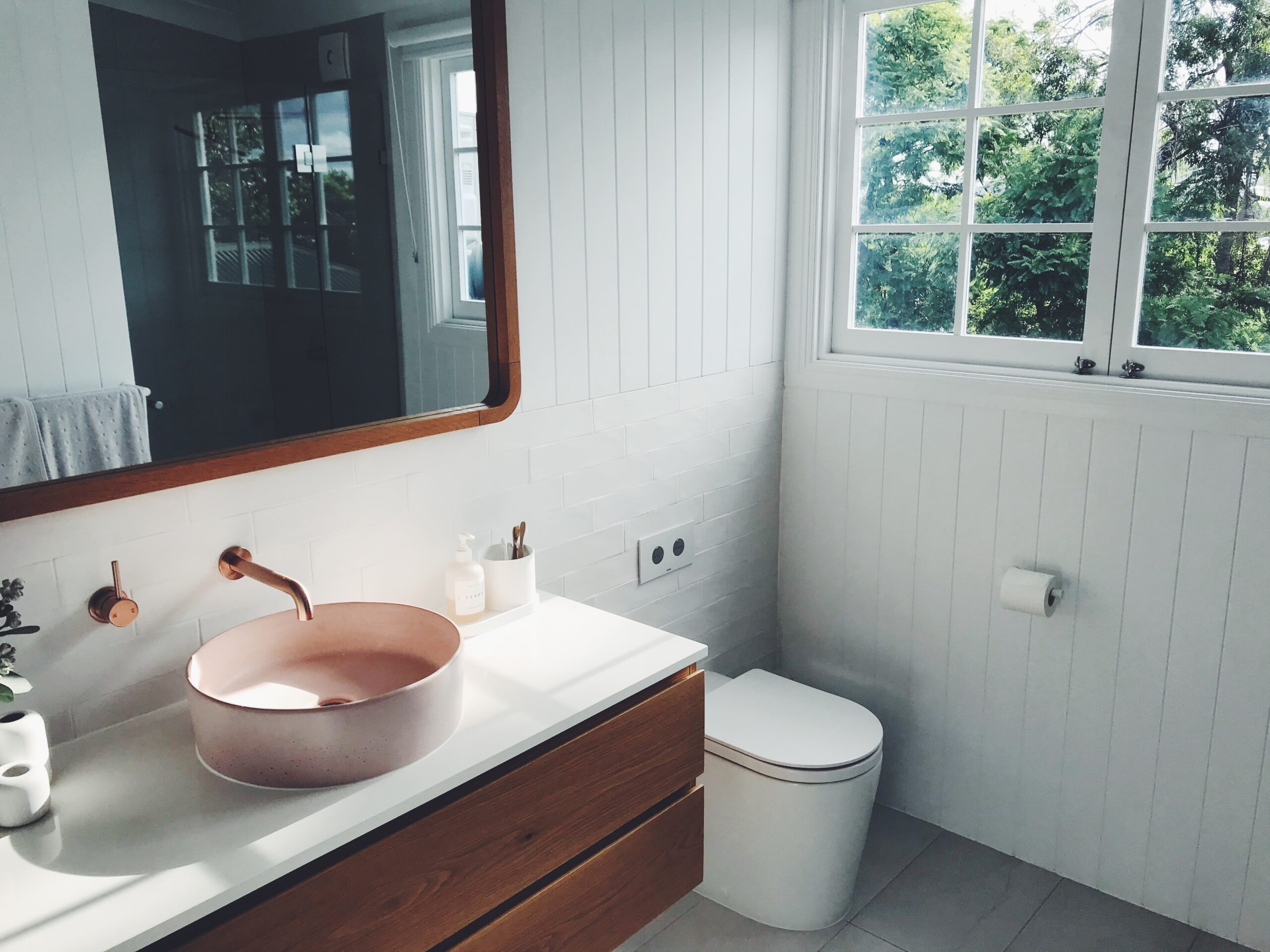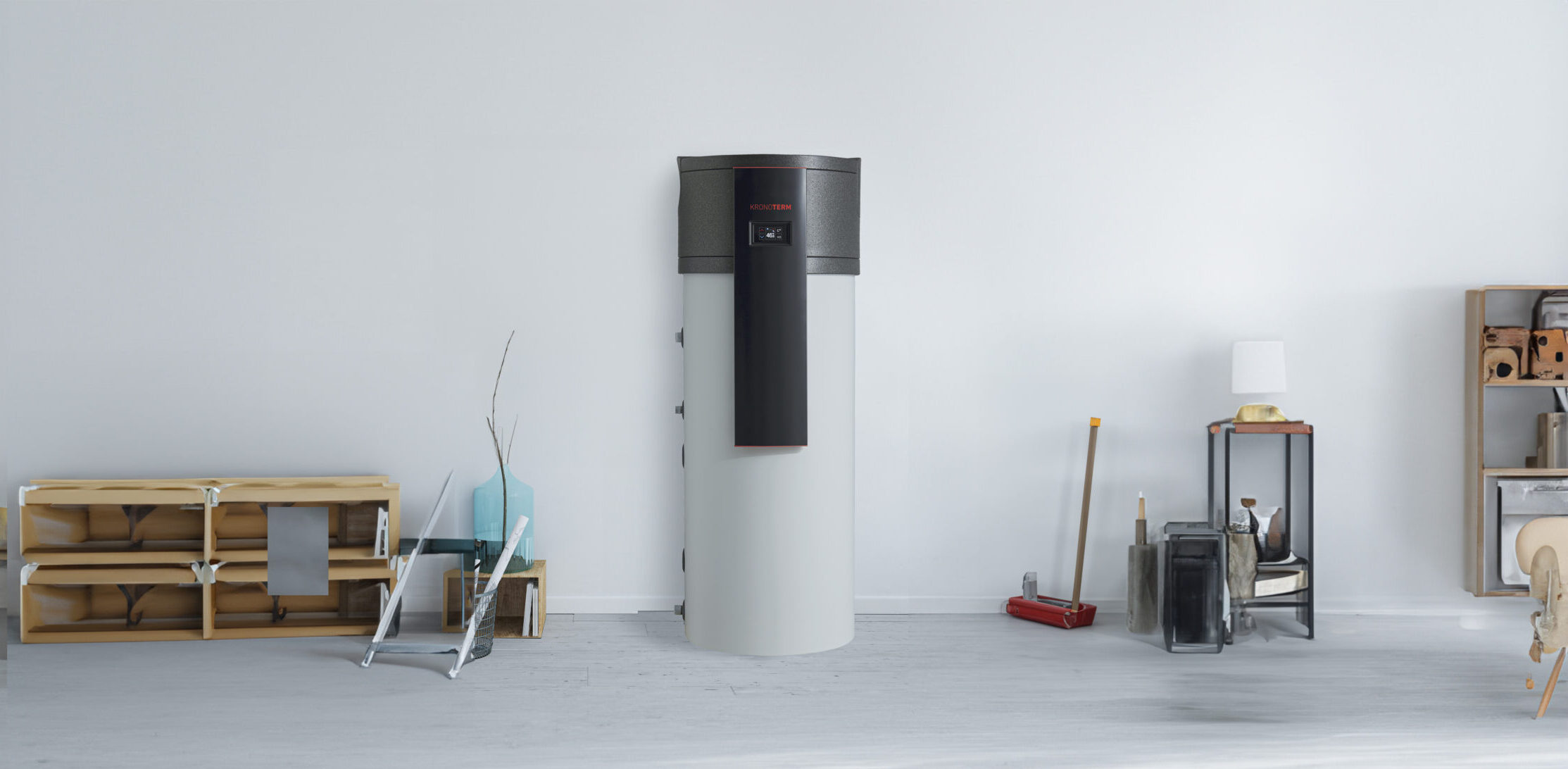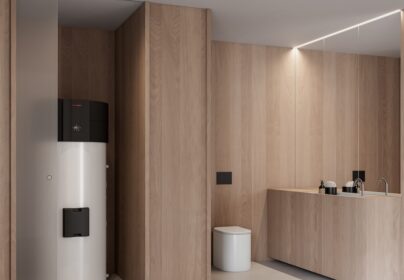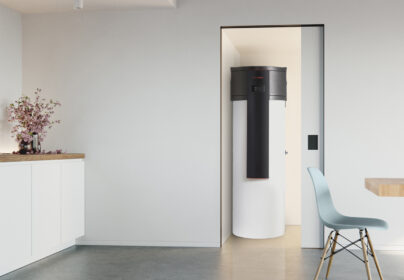If you’re considering how to heat domestic hot water in your home, you’ve probably wondered: Is a domestic hot water heat pump or an electric boiler the better choice? The answer is clear – a DHW heat pump offers more advantages in terms of costs, comfort, and environmental impact.
Yes. A domestic hot water heat pump uses up to 75% less energy than an electric boiler. This means significantly lower domestic hot water heating costs, a smaller environmental footprint, and greater comfort.






